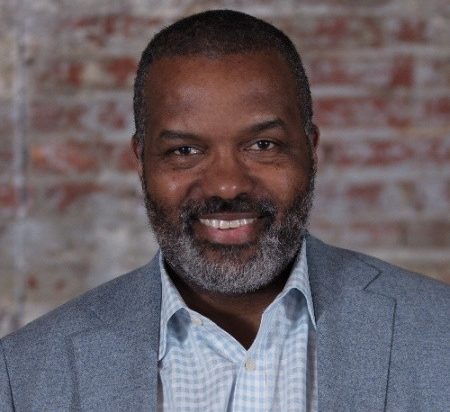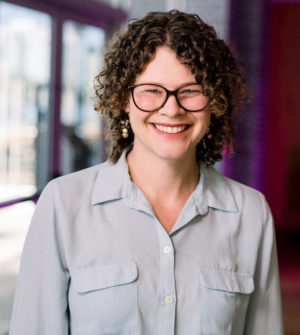Blame it on a variety of causes: The naturally slower pace of an emerging local market. A conservative culture reluctant to invest in novel ideas. Even the oft-alleged image problem created by popular depictions like “The Wire” or “We Own This City.”
Clearly, Baltimore’s tech sector is growing. But while several leaders of capital investment firms based in the city agree with that, they also say that funding levels aren’t at the ideal levels — and cited the aforementioned reasons, among others, for why.
In fact, several funders told Technical.ly that venture capital, and investment for Baltimore-bred tech founders beyond the beginning stages, are more limited than they should be.
A lack of middle-ground support
McKeever Conwell II, head of RareBreed Ventures, noted that while local supports exist for founders at various stages, they aren’t typically sustaining companies past their earliest steps.
“You have all the different angel groups at all the different universities,” Conwell said. “You’ve got TEDCO for the early-stage stuff. You’ve got Early Light. You’ve got Early Charm. You’ve got RareBreed. Once a company gets to a Series A, a Series B, there’s not a whole lot here.”
Given these dynamics, Conwell sees pathways to founder flight: “Those firms [funding at that stage] aren’t here, so then companies have to start looking for money elsewhere. And then when you start looking for money elsewhere, you get tempted to want to leave.”
RareBreed seeks to invest in founders that traditional VCs frequently overlook or reject. The firm often provides their ventures between $100,000 and $250,000.
Another local fund, Conscious Venture Partners, also looks for founders potentially underestimated by other VCs. Jeff Cherry, the founder and managing partner of the investment firm and its eponymous accelerator, sees big rewards in finding innovators within Baltimore’s underserved communities.

Jeff Cherry. (Courtesy photo)
“By creating that impact on those communities, we’re also creating opportunities for outsized returns,” Cherry said.
His firm has at least $21 million in signed or verbally committed investment allocations, he said, with the average check totaling about $140,000. His team is currently working to raise $50 million in funding by the first quarter of 2023.
Even with the support of wealthy businessmen like Under Armour founder Kevin Plank and Baltimore Ravens majority owner Steve Bisciotti, Cherry hopes that even more prominent players in what he sees as “a financially conservative town” will more fully invest in the startup sector soon.
“It’s getting to a point now that there’s enough going on, there’s enough startup activity, that we can see this is turning into a real startup ecosystem,” he said. “It’s time to see if we can get some of that money off the sidelines.”
A problem of portrayal
Cherry and Conwell also believe Baltimore has a serious challenge with its public image — one that they don’t believe is particularly accurate.
“To this day, when I meet somebody and I tell them I’m from Baltimore, what’s the one thing they always bring up?” Conwell asked. “You know it. I know it. It’s ‘The Wire.’ To this day, I’ve never watched the show, and I’ve heard great things about it. [But] I can’t measure the consequences of Baltimore being known for ‘The Wire.’”
Ex-Baltimore Sun journalist David Simon’s near-universally acclaimed HBO crime drama gave millions of viewers a limited, gritty and dysfunctional perception of the city that sometimes gets in the way of the real business going on here.
“We have a storytelling problem in Baltimore,” Cherry said. “If you think about cities that are similar to ours, we are actually doing a lot better than some cities that tell a better story than we do — both in terms of the maturity of things that are happening in the ecosystem, and some of the money that’s being put to work.”
Competing in a wider world
Emily Durfee, an executive with Baltimore-HQed managed care giant CareFirst, said that around 20% of the healthcare giant’s investments in its Healthworx venture capital portfolio come from the mid-Atlantic region it serves. Its total fund size is $100 million, which gets invested in $1-$5 million increments.

Emily Durfee. (Courtesy photo)
Durfee, Healthworx’s director of strategy and portfolio acceleration, said the organization does not confine its investments geographically but instead seeks out members’ best opportunities by finding strategic alignment with CareFirst. Her team also examines traditional metrics like a startup’s leaders, traction, financing and product market, as well as the overall competitive landscape.
“We’re in an interesting world where a lot of things are nationalized,” she said. “Everything is happening over Zoom. I’m not actually sure I could tell you [of] all the entrepreneurs who I talk to on a regular basis, where they are based.”
Durfee added that the venture capital sector has been contracting nationally for the last few quarters, and where it’s headed remains unclear. Even so, she remains excited about Baltimore’s prospects.
“I think there are still ways we try to contribute and be meaningful players in that,” she said. “I’m bullish about venture capital and I’m bullish about Baltimore.”
How far can it grow?
Some in the field believe the economics of scale demand the majority of large-scale investment to gather in Silicon Valley, Boston and similar cities. Others aren’t so sure; For example, local ecosystem-building entity UpSurge Baltimore recently cited a possible $11 billion investment pool if the right stakeholders align their money accordingly.
Ken Malone’s Pigtown-based Early Charm Ventures invests in Baltimore tech, but not through venture capital. It instead acquires ideas and innovations directly from universities and labs — 37 so far. Malone says his company has grown by 60% year after year and is focused on employing upward of 500 people by the decade’s end.
“I don’t hate venture capital,” he said. “I just don’t think it is where the future is for Baltimore.”
Malone believes that by its nature, major venture capital for tech is destined to cluster in capital-centric regions. There is room to grow and succeed with venture capital investment in Baltimore, but it will not expand enough to be one of the nation’s very few preeminent players.
He cited the example of Austin, Texas, which currently boasts strong tech startups but not much available venture capital, and doesn’t think most of Baltimore’s biggest businesses have grown through VC investment

Ken Malone. (Courtesy photo)
“There are many, many other types of financing, and if our goal as a community is to have equitable growth in the city, then I don’t care about venture capital,” he said. “It’s the last thing that’s ever going to be on my mind.”
Others, like UpSurge, are leaning toward the possibility of more venture capital for Baltimore tech. Conwell believes firms like his will become commonplace in the city, with RareBreed growing with them.
“But that comes as we get more wins, as people see that if you invest in that company in Baltimore, it has the ability to grow really large,” he clarified. “We need one or two billion-dollar companies to really grow that.”
Moreover, as Cherry noted: Baltimore has already seen major VC investments. Last year, for instance, Johns Hopkins reported over $1 billion invested in university-founded startups. In early 2022, LabCorp acquired Baltimore’s PGDX for $575 million.
Baltimore investors from different perspectives hope the tech momentum continues. While many think the city’s tech startup sector is not where it needs to be yet, they also believe its growth potential is strong.
“There are lots of others who aren’t stepping up yet,” Cherry said. “And it’s going to take a collective effort to turn this city into another startup scene that I think a lot of us know it can be.”
Join the conversation!
Find news, events, jobs and people who share your interests on Technical.ly's open community Slack

Baltimore daily roundup: An HBCU innovation champion's journey; Sen. Sanders visits Morgan State; Humane Ai review debate

Baltimore daily roundup: Medtech made in Baltimore; Sen. Sanders visits Morgan State; Humane Ai review debate

Baltimore daily roundup: The city's new esports lab; a conference in Wilmington; GBC reports $4B of economic activity


